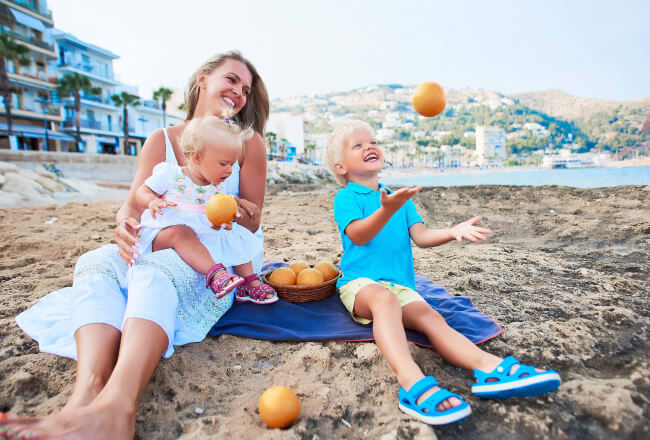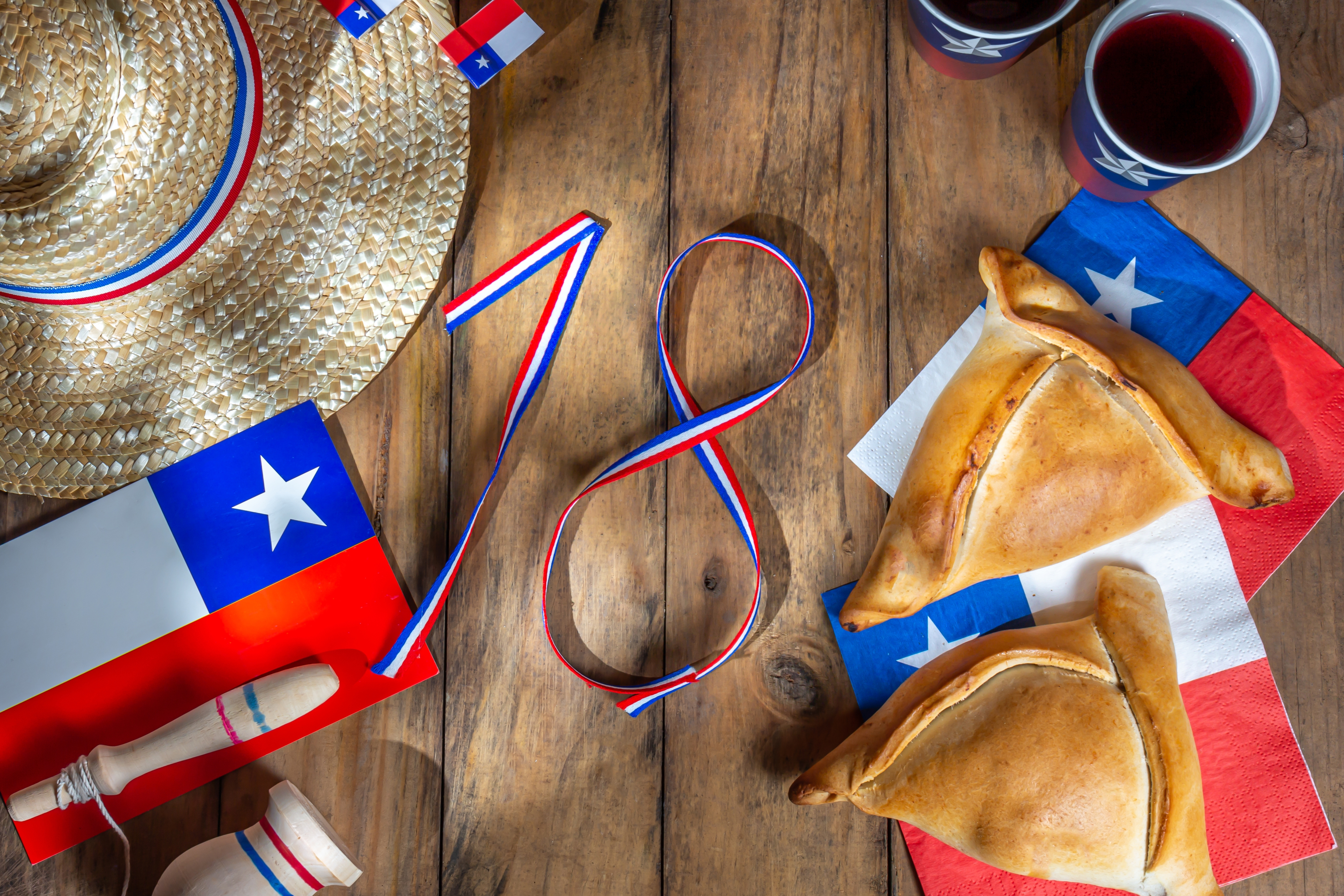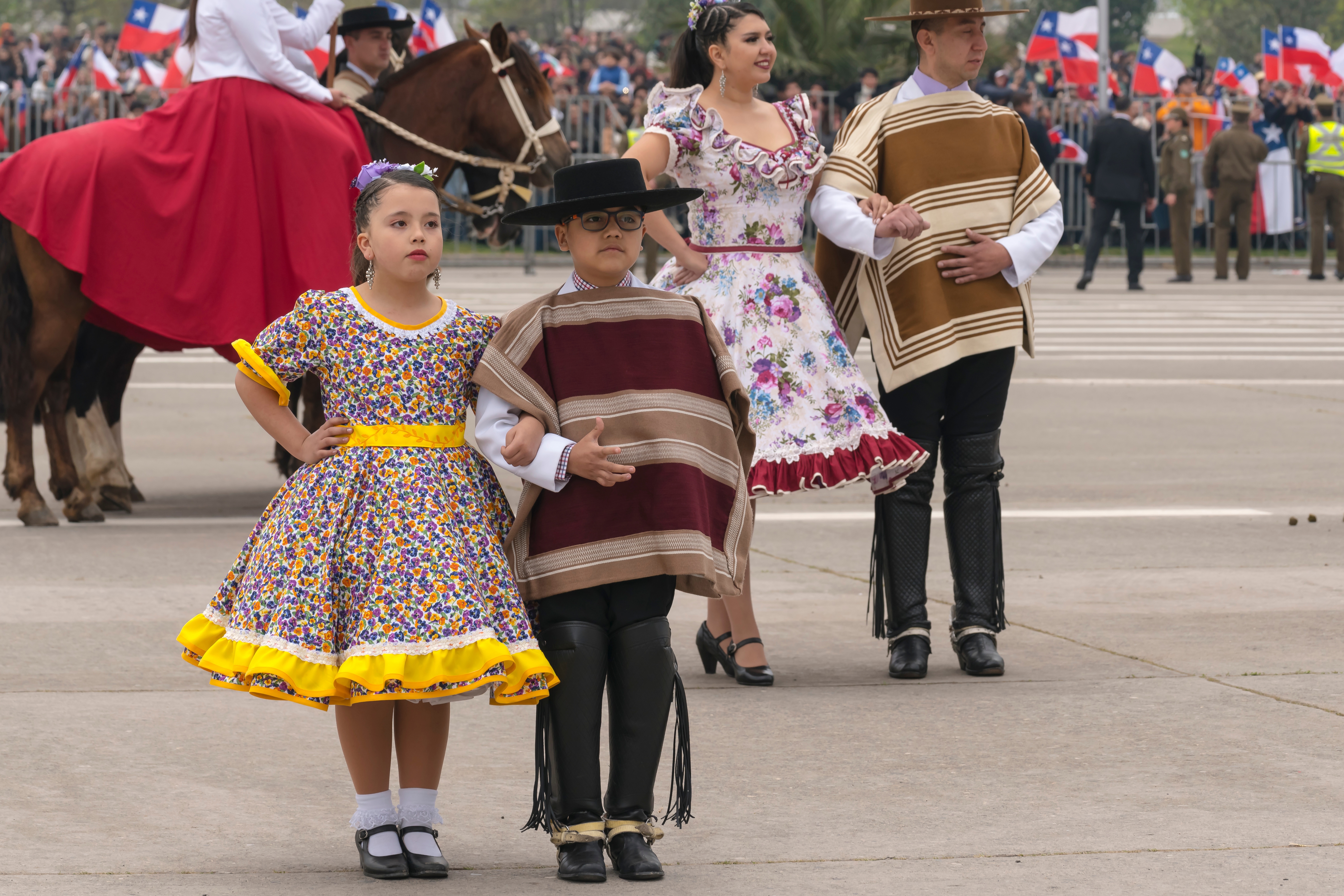

Major Holidays in Chile: A Guide for Foreigners
Discover Chile’s unique celebrations, including Independence Day, religious events, and local cultural festivals. Learn how Chile celebrates its most significant and vibrant events.
Holidays in Chile are notable for their diversity, uniqueness, and vibrancy. Some celebrations are quite traditional, yet they are often celebrated differently than elsewhere. Many celebrations are associated with the Catholic religious calendar, reflecting the deep religiosity of Chileans. Each event can surprise and amaze any tourist, and the list of events celebrated annually is impressive.
This article will highlight the most interesting holidays and their significance in the lives of Chileans. This topic will be of interest to those studying Latin American traditions, couples planning to have a baby in Chile, and ordinary travelers.
Chilean National Holidays
The country’s events are not associated with indigenous rituals, fiery carnivals, or ethnic flair. However, they are unique and allow you to appreciate the cultural diversity, rivaling the landscapes of Chile.
Banks and stock exchanges close on national holidays such as Independence Day, New Year’s Day, Labor Day, Sea Day, Navy Day, and National Day. Children go on vacation during school holidays, and a cascade of fun begins: carnivals, festivals, exhibitions, and sports/cultural events. A Chilean holiday is a time of constant fun and warmth.
Independence Day (Fiestas Patrias)
September 18th is a very important date. On this day, the country was liberated from Spanish rule, and everyone can participate in the biggest celebrations. The magnificent festivities include:
- Musical performances
- Film festivals
- Theatrical performances
- Light shows
- Rodeos
- Fireworks
Each year, the celebrations are special, unforgettable, and extraordinary. In Santiago, at the National Stadium, tourists and locals are treated to spectacular performances. Grand military parades, often featuring foreign delegations, can be seen in the squares.
On this day, many people go outdoors with friends and family to enjoy a large asado barbecue. The best way to experience the Fiestas Patrias spirit is by visiting the holiday markets. Here, you can try various versions of the Terremoto cocktail, which means “earthquake” and is made with Granadilla liqueur, Pipinyo wine, berry syrups, and ice cream. At the fairs, you can also enjoy cueca dancing, chicha, and all kinds of Chilean cuisine. This Latin American country takes pride in its history, making Independence Day the most important holiday.
Day of the Sea (Día del Mar)
Celebrated every year on May 21, this holiday commemorates the defeat of the national fleet in a naval battle during the War of the Pacific with Peru (1879). Despite the loss, Chileans won the war, and the country became unified. Sea Glory Day is a tribute to the fallen heroes and Chile’s glorious historical past. The national holiday includes laying flowers at monuments, military parades, and ceremonies in the port cities of Talcahuano and Valparaiso.
New Year
Traditionally celebrated on December 31 and January 1, locals and tourists often prefer to celebrate the New Year by the sea. For those who want snow and cold, visiting the great ski resorts is an alternative.
Characteristics of New Year’s Holidays in Chile:
- An invariably warm atmosphere, both in terms of the friendly and sincere attitude and the summer temperature outside
- The tradition of giving many gifts, as Chileans value strong family relationships
- Festive tables covered with hearty, spicy, aromatic dishes and wonderful local wines and liqueurs
Interesting to know: On Easter Island, there is an original New Year’s belief that whoever finds the first swallow’s egg on this holiday is given the title of “Most Honored Person” with privileges for an entire year.
Labor Day
Chile, like many countries, celebrates Labor Day. Chileans respect work and can be considered workaholics. Surprisingly, almost all nightclubs close on May Day, but that doesn’t stop the fun. On Labor Day, everyone enjoys themselves, relaxes, visits bars and restaurants, and has picnics in nature. The atmosphere of general fun is maintained by original alcoholic drinks and delicious sweets in great abundance. May 1st is a celebration that brings together people of different hobbies and professions. Everyone, including guests who visit this amazing Latin American country, is congratulated.

Religious Holidays in Chile
Many holidays are associated with the Catholic religious calendar, reflecting the faith of the majority of the population.
Semana Santa (Holy Week)
Chilean Easter is celebrated for seven days with mandatory church attendance. At mass, everyone receives a consecrated palm leaf, a symbol of Jesus Christ’s entry into Jerusalem. Attributes of Semana Santa include chocolate bunnies and eggs.
You can participate in processions and re-enactments of the Stations of the Cross. The streets along which the participants pass are lined with tables so that everyone can rest and enjoy Easter treats.
Day of the Virgin of Carmen
Celebrated on July 16, this religious holiday is especially important for coastal regions. The tradition of celebrating the day of the Virgin of Carmen, protector and patron of fishermen and sailors, was brought to the country by Spanish conquerors. It is believed that the first statue of this symbol of protection was installed in the main port city of Valparaiso.
The celebration of Día de la Virgen del Carmen includes several traditions:
- Solemn processions in coastal cities and towns with the participation of a statue of the Virgin of Carmen. Believers carry candles and sing hymns in her honor.
- Marine parades involving Chilean naval ships and civilian vessels.
- Pilgrimages to shrines of the Virgin of Carmen throughout the country to offer prayers and express gratitude.
- Fireworks at night, symbolizing the blessing and protection of the saint.
- Holiday treats, such as “empanadas de camarón” (shrimp cakes) and “caldillo de congrio” (eel soup).
The Virgin of Carmen Day celebration in Chile is a popular tourist attraction. Visitors can witness numerous colorful processions and festive events, providing an opportunity to immerse themselves in the rich culture and traditions of the country.
Local and Ethnic Holidays
Chile is known for its rich cultural heritage and local and ethnic holidays, influenced by indigenous traditions, Spanish colonization, and other cultures. These holidays play a major role in preserving the country’s cultural heritage and are celebrated in various regions of Chile.
Carnival with the Moon on the Cliffs (Carnaval con la Fuerza del Sol)
This spectacular costume ball is held annually in various coastal cities, celebrating the return of the sun after the long winter months. It’s a time for dancing, singing, and connecting with the powerful forces of nature.
The performance takes place under the glow of the full moon. Groups of dancers, dressed in colorful costumes inspired by the sea and the moon, glide along the rocks, their movements following the rhythm of the waves. The dance symbolizes the ancient belief that the moon maintains a powerful connection with the earth and people; it looks magical.
The Moon Carnival on the Cliffs is not only about dancing but also an opportunity to visit interesting fairs. The air is filled with the aromas of traditional Chilean dishes, from fresh seafood to hearty stews. Local artisans showcase their crafts, selling handmade textiles, ceramics, and intricately carved wooden sculptures.
Live folk orchestras create a festive atmosphere. The sounds of drums, flutes, and guitars merge with the crash of the waves, complementing the symphony of the holiday.
Mapuche New Year (We Tripantu)
In addition to traditional New Year holidays, Chile also celebrates the New Year of the Mapuche Indians. This annual event marks the beginning of a new agricultural cycle, rich in tradition and carrying deep spiritual meaning. It falls on the winter solstice, June 21 or 22, symbolizing the rebirth of the sun, renewal, hope, and the promise of a bountiful harvest. It is a time for reflection and gratitude, expressing thanks to the earth for its gifts.
We Tripantu is a festival with many ancient rituals. In the past, ‘We Tripantu’ was celebrated with elaborate ceremonies and rituals. Families gathered in communities, performed ancestral dances, offered prayers to the spirits of the earth, and ate traditional foods.
Although many ancient traditions have changed, We Tripantu is still celebrated in a special way in Chile. It includes:
- Ceremonial bonfires symbolizing the rebirth of the sun and serving as a channel of communication with the spirits of ancestors.
- Traditional dances, such as “Machitun” and “Queca,” performed by the Mapuche people.
- Spiritual ceremonies, where some Mapuche communities practice traditional rituals, offering prayers to the spirit of the earth and seeking blessings for the coming year.
Everyone can participate in the celebration, and the festival is recognized as a national holiday in Chile. On this day, schools and government offices are closed.
Modern Holidays in Chile
In addition to national and ethnic holidays, the country celebrates many events that reflect unique Chilean characteristics.
National Wine Day (Día Nacional del Vino)
Celebrated every year on April 24, this event brings together winemakers, wine lovers, and all those who appreciate the rich history and culture of Chile. Día Nacional del Vino began in 1994 to pay tribute to a winemaking tradition that dates back more than 500 years.
Holiday traditions include:
- Various entertainments
- Tastings, festivals, gastronomic events, and competitions organized throughout the country
- Wineries opening their doors to visitors, offering excursions, master classes, and the chance to taste rare varieties
Día Nacional del Vino is not only a holiday for wine lovers but also an important day for the entire wine industry in the country. Chile has earned a reputation as one of the world’s leading wine producers of high-quality and diverse varieties. Wine Day is a great opportunity to discover the unique world of Chilean winemaking.
Of course, we have only highlighted some of the actively practiced activities. All Chilean holidays are magnificent, blending indigenous traditions with ethnic, national, and modern celebrations. Chileans deeply value their history and traditions. Chile is a striking example of how the heritage of indigenous peoples has influenced the development of Latin American culture.
